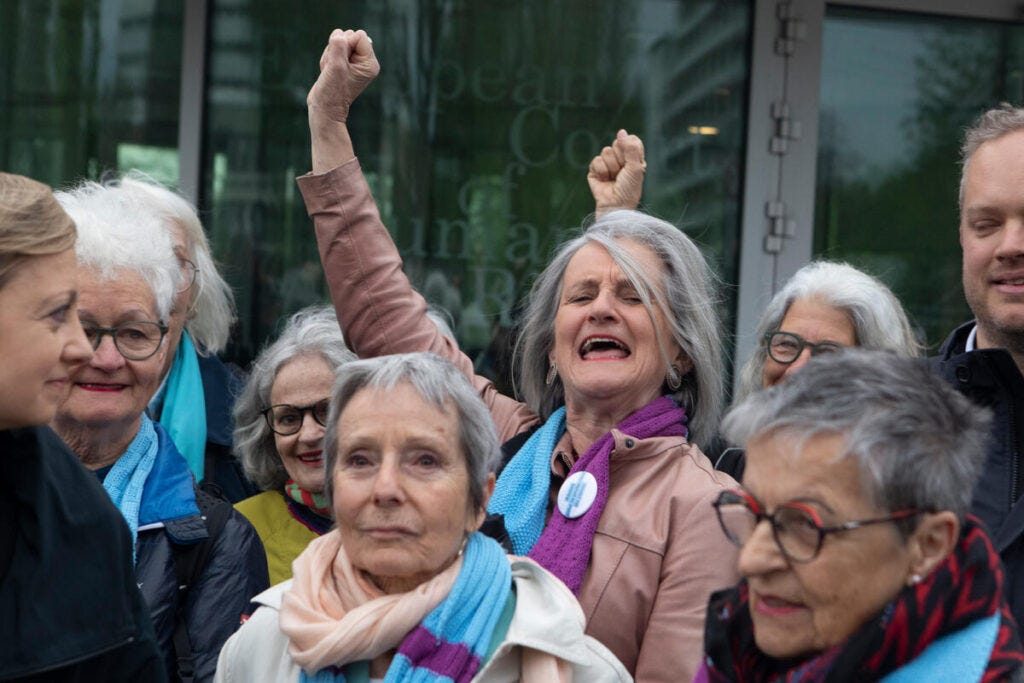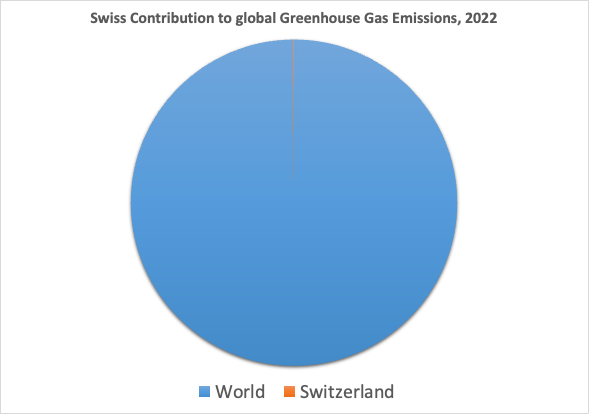Switzerland’s greenhouse gas emissions are a rounding error
A recent landmark court ruling shows the limits of emissions activism

Last week, a group of 2,000 older women in Switzerland won a landmark lawsuit at the European Court of Human Rights, arguing the government’s failure to meet Switzerland’s climate targets put their health at risk by increasing the likelihood of fatal heat waves.
The ruling’s gotten a fair bit of play, but I wonder if people quite grasp the geophysical realities involved.
Switzerland emitted 45.6 million tons of carbon dioxide equivalent in 2022, the latest year for which we have data. The Swiss accounted for 0.08% of the global total GHG emissions of 53,786 million tons. You can try to put this in a pie chart, but you need a magnifying glass to see the Swiss contribution to the problem (in red):
Switzerland can —and, by court order, now will have to— spend millions to speed up the rate at which its contribution to the global total have been declining.
Because Swiss emissions have been declining. Back in 2001, Switzerland emitted 55.4 million tons of CO2 equivalent, compared to 45.6 million tons in 2022.
Alas, in the same period that Switzerland struggled to bring its emissions down by 10 million tons, global emissions rose by 16,469 million tons. Switzerland could be erased from the globe tomorrow and it wouldn’t really make any difference from our climate trajectory.
Swiss emissions are a rounding error on a global scale. But that doesn’t mean there’s nothing useful Switzerland can do. There is!
If the Swiss government were to respond to the court ruling by rapidly ramping up its research funding for albedo-based climate solutions, it could dramatically reduce its older women’s chances of succumbing to heat stroke.
Sadly, the possibility of cooling the planet directly through increased albedo hasn’t broken through to the public mind. Scientists know about it, but the public has been kept woefully in the dark.
There’s some sign that the Swiss federal government gets it. Alone, it has been pushing to bring albedo-based solutions into international discussions about climate change. So far, the rest of the world has refused to even discuss the kinds of solutions that could make a difference quickly enough to matter to Switzerland’s pensioners… and to everyone else.



